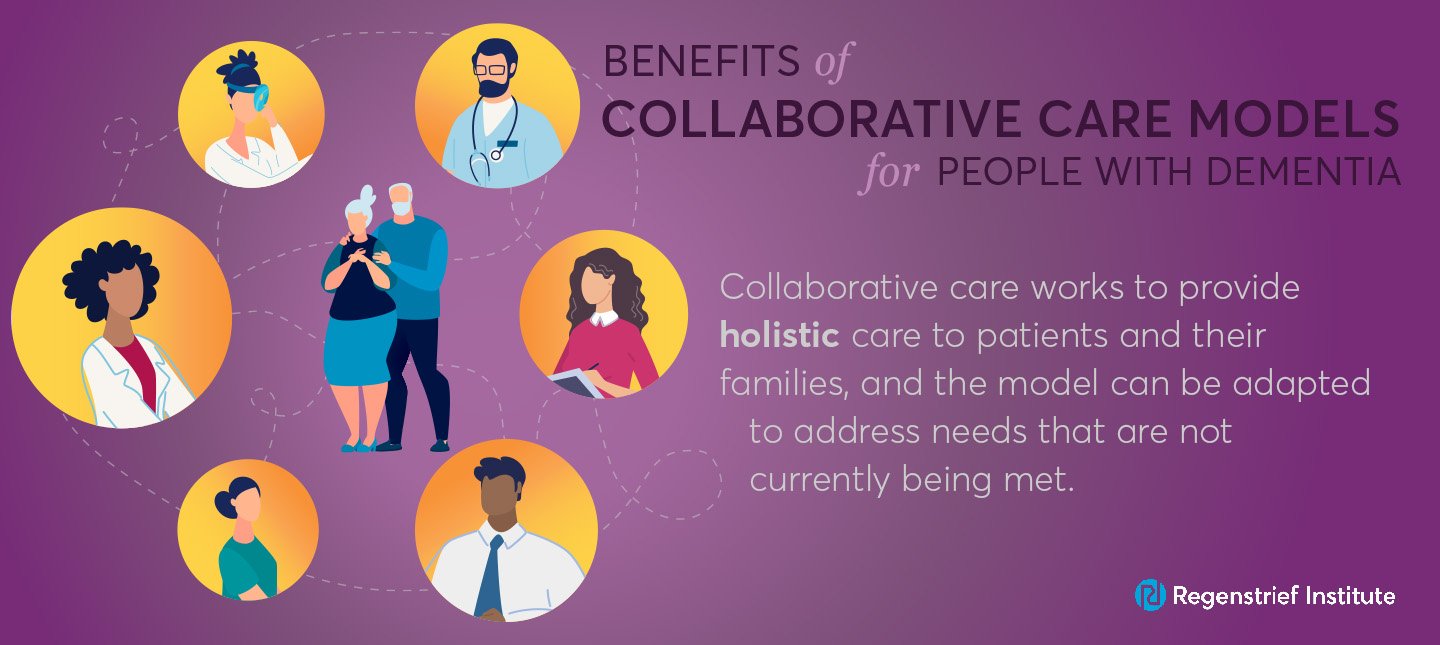Research and implementation by Regenstrief research scientists cited in report
A new report from the National Academies of Sciences, Engineering, and Medicine (National Academies) details the state of dementia care and research in America and provides guidance on future research to make sure both patients and their families are having their needs met by the care they receive. Sections of the report highlight the effectiveness of the collaborative care model as well as successful implementation, citing research from Regenstrief Institute, Eskenazi Health and the Indiana University School of Medicine.
There are between 3.7 million and 5.8 million people living with dementia in the United States, and that number is likely to grow as the population ages.
The report, Meeting the Challenge of Caring for Persons Living with Dementia and Their Care Partners and Caregivers: A Way Forward, sponsored by the National Institutes of Health’s National Institute on Aging, looked at the various needs of people with dementia, including help with medication use, paying bills and managing day-to-day activities. It notes several limitations of current care interventions. However, based on an independent systematic review by the Agency for Healthcare Research and Quality, it found two types of interventions that are supported by low-strength evidence of benefit: collaborative care models, which integrate medical and psychosocial care; and Resources for Enhancing Alzheimer’s Caregiver Health (REACH) II, an intervention aimed at supporting family caregivers.
Regenstrief Research Scientist and IU School of Medicine Professor of Medicine Christopher Callahan, M.D., was a member of the committee that compiled the report. He has worked extensively with colleagues at Regenstrief, IU and Eskenazi Health on developing and implementing collaborative care models for Alzheimer’s disease. Improving care for persons living with dementia and their care partners is an important research focus for a large team of scientists in the Center for Aging Research at the Regenstrief Institute.
“This report incorporated feedback from people with dementia and their families, and they indicated that outcomes measured by past research have been too narrow and there are other areas of wellbeing that are important to them that have not been taken into consideration,” said Dr. Callahan. “Collaborative care works to provide holistic care to the patients and their families, and the model can be adapted to address needs that are not currently being met.”
Collaborative care models integrate medical and psychosocial care, delivered by a team of providers including physicians, nurses, psychologists, care coordinators and social workers. This model has proven to significantly improve patient and caregiver outcomes and reduce costs and has been successfully implemented at the Sandra Eskenazi Center for Brain Care Innovation.
The National Academies report highlighted the urgent need to put into practice evidence-based interventions, referencing the work of Regenstrief Research Scientist and IU School of Medicine Professor Malaz Boustani, M.D., MPH. Dr. Boustani is creating strategies for more trials that take place in real-world situations, while still being rigorous in testing important outcomes.
“Patients and families indicated that they understand that interventions will not be perfect, but they want them implemented now, in the real world, while research and refinement continues,” said Dr. Callahan.
The report proposes a blueprint for future research, which includes methodological improvements and approaches that can complement randomized control trials. A major focus should be assessing real-world effectiveness and prioritizing inclusive research.
More information the Sandra Eskenazi Center for Brain Care Innovation
More information on Alzheimer’s and resources
About Regenstrief Institute
Founded in 1969 in Indianapolis, the Regenstrief Institute is a local, national and global leader dedicated to a world where better information empowers people to end disease and realize true health. A key research partner to Indiana University, Regenstrief and its research scientists are responsible for a growing number of major healthcare innovations and studies. Examples range from the development of global health information technology standards that enable the use and interoperability of electronic health records to improving patient-physician communications, to creating models of care that inform practice and improve the lives of patients around the globe.
Sam Regenstrief, a nationally successful entrepreneur from Connersville, Indiana, founded the institute with the goal of making healthcare more efficient and accessible for everyone. His vision continues to guide the institute’s research mission.
About IU School of Medicine
IU School of Medicine is the largest medical school in the U.S. and is annually ranked among the top medical schools in the nation by U.S. News & World Report. The school offers high-quality medical education, access to leading medical research and rich campus life in nine Indiana cities, including rural and urban locations consistently recognized for livability.
About Christopher Callahan, M.D.
In addition to his role as a research scientist at Regenstrief Institute, Christopher M. Callahan, M.D., is chief research and development officer at Eskenazi Health and a professor of medicine at Indiana University School of Medicine.











